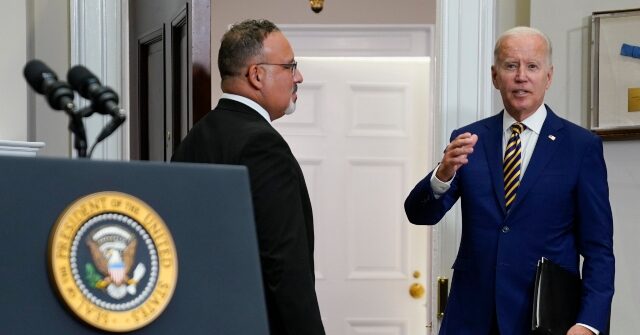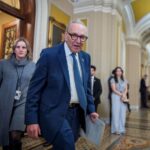

President Joe Biden announced his decision to forgive up to $20,000 of federal student debt for individuals making less than $125,000 a year, defending the fairness of his decision.
“I understand not everything I announcing today is not going to make everybody happy,” he said, adding that he believed his decision was “responsible and fair.”
After the president delivered his speech at the White House, he was asked by reporters how he could see his plan as “fair” compared to students who either did not take out loans or already paid them off.
Biden appeared annoyed by the question and compared his decision to Republican-passed tax reform legislation in 2017.
“Is it fair to people who in fact do not own multibillion-dollar businesses to see when these guys get all the tax breaks? Is that fair?” Biden replied. “What do you think?”
The Penn Wharton Budget Model estimates Biden’s plan will cost at least $300 billion.
The president outlined his decision in a speech at the White House, admitting that there would be critics of his decision.
“Let’s be clear. I hear it all the time, ‘How do we pay for it?’ We pay for it by what we’ve done,” he said, despite singing trillions of dollars of spending during his 18 months as president.
Biden urged all students looking for student loan forgiveness to visit a website that was not accessible due to overwhelming traffic.
White House
An economic adviser for former President Barack Obama, Jason Furman, criticized the decision on social media as a “reckless” act that would only pour “gasoline” on economic inflation.
He also challenged the White House’s claim that Biden’s student debt forgiveness would provide relief to American households struggling with inflation.
“The stimulus is relatively small (a multiplier of ~0.1). So the inflation impact is likely to be about 0.2-0.3pp,” he wrote. “That is $150-200 in higher costs for a typical household.”






